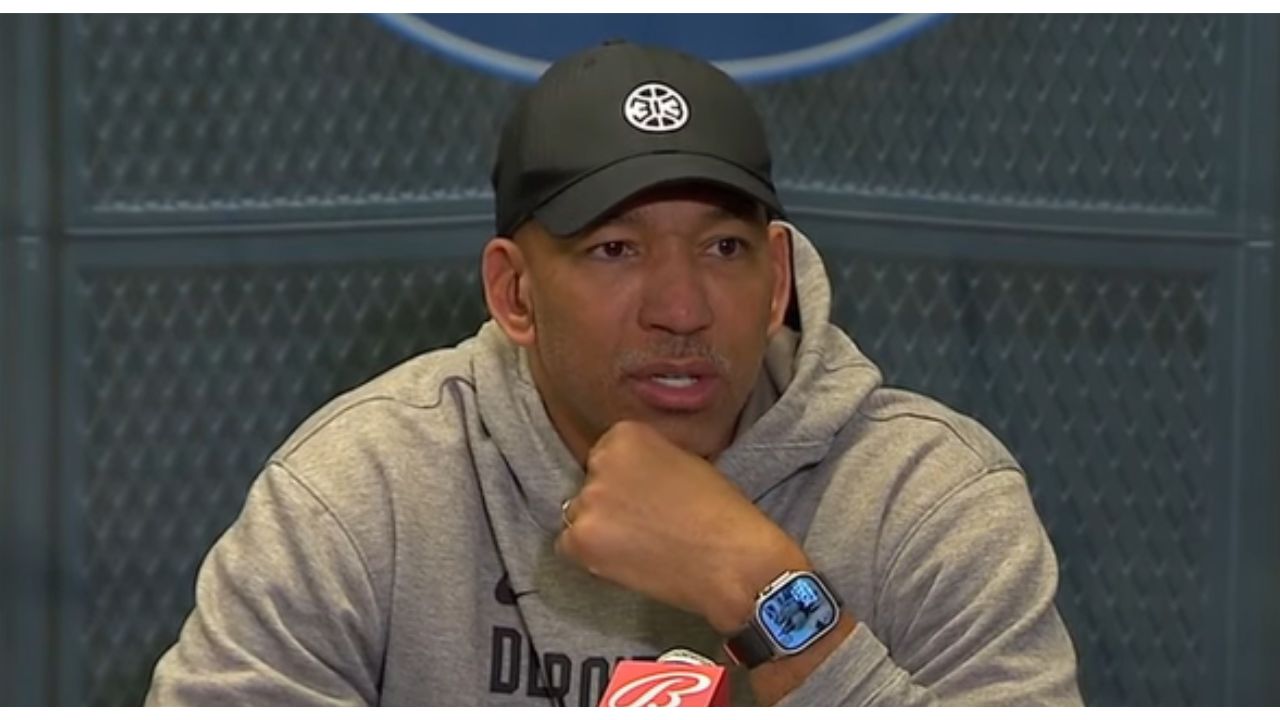In the wake of an intense battle against the New York Knicks, all eyes in the basketball world turn towards Detroit Pistons coach Monty Williams, who emerges as a beacon of unwavering resilience and unyielding integrity amidst the storm of mounting pressure and intense scrutiny. Williams’ impassioned critique of officiating, ignited by a critical non-call that favored the Knicks, has sparked a fiery debate, reigniting conversations on the pivotal role referees play in shaping game outcomes and redefining the standards of fairness and justice within the NBA.

As the Pistons gear up for their imminent showdown against the Chicago Bulls, Williams stands tall, his resolve unshaken by the acknowledgment of officiating errors by the crew chief. Despite the looming specter of potential fines from the NBA, Williams remains steadfast in his conviction, emphasizing the paramount importance of addressing the isolated incident while keeping the team’s growth and development at the forefront of his priorities, showcasing not only his commitment to the game but also to the integrity of the sport.
At the heart of the controversy lies a frenzied final possession, tainted by a collision between the Knicks’ Donte DiVincenzo and Pistons rookie Ausar Thompson, culminating in a game-defining turnover that ultimately sealed the Knicks’ victory. Even in the wake of Crew Chief James Williams’ subsequent admission of officiating mistakes, Monty Williams refuses to gloss over the truth, vehemently denouncing the call as “the absolute worst of the season” and branding it “an abomination,” sparking an uproar among fans and analysts alike.
Despite facing inquiries regarding potential repercussions from the league for his outspoken comments, Williams boldly reveals that he has yet to receive any notifications, standing firm in his conviction that acknowledging the mistake will neither alter the game’s outcome nor assuage the Pistons’ disappointment. His unwavering commitment to transparency and accountability resonates deeply within the NBA community, serving as a powerful reminder of the importance of upholding the principles of fairness and justice, even in the face of adversity.
Delving into the depths of the missed opportunity and the adversities encountered by his team, Williams delivers a passionate plea to his players, urging them to transcend setbacks and seize control of their destiny on the court. Emphasizing the critical significance of learning and growth, he implores the team to extract invaluable lessons from the experience and channel their frustration into fuel for renewed determination and resilience, epitomizing the true essence of leadership in times of adversity.
Amidst the tumultuous aftermath of the controversial call, Williams’ unwavering conviction serves as a clarion call for accountability and transparency in officiating within the NBA community, inspiring fans and athletes alike to demand fairness and justice in every aspect of the game. Despite the bitter taste of defeat, the Pistons stand undeterred, resolved to transform their anguish into a relentless pursuit of excellence as they navigate the turbulent waters of the NBA season, under the unwavering leadership of Monty Williams.
Kaira Insight:
Monty Williams’ unwavering stand against officiating controversy not only epitomizes the resilience and integrity ingrained within the essence of sportsmanship but also embodies the very essence of leadership in the face of adversity. In a league characterized by relentless scrutiny and unyielding pressure, Williams’ steadfast refusal to compromise on his principles serves as a beacon of hope for fair play and justice. As the Pistons forge ahead under his unwavering leadership, their unyielding resolve promises to inspire fans and athletes alike, reaffirming the indomitable spirit that lies at the heart of competitive sports.






